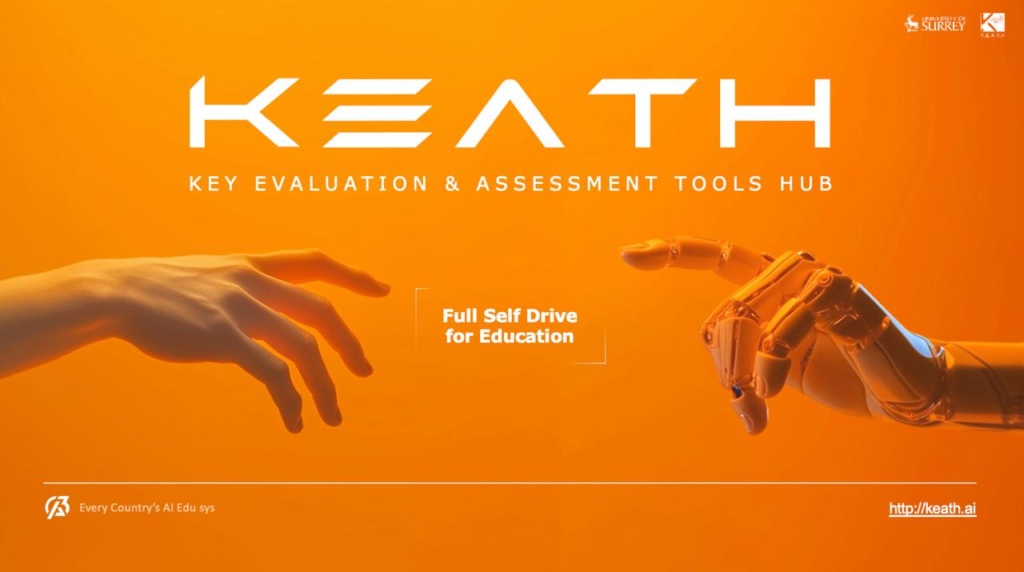
Professor Chris Imafidon, chair of ExcellenceinEducation.org.uk programme explains how learners are now deploying better than chatGPT and other AI tools in Harnessing AI for Exam Success: (Ways of usingAI tools such as LLMs Like Grok and ChatGPT Revolutionize GCSE, A-Level Undergraduate Revision)
AI-based Large Language Models (LLMs) like Grok and ChatGPT are transforming how students prepare for GCSEs, A-Levels, and other exams. These AI tools offer structured, data-driven support for logical learners while sparking creativity and engagement for those who thrive on intuitive approaches. By combining analytical rigor with imaginative strategies, LLMs empower students to revise efficiently and confidently. Below, we explore practical applications, real-world case studies, and specific prompts to illustrate their impact, catering to both left-brained (analytical) and right-brained (creative) learners.
Analytical Advantage: Data-Driven Revision for Left-Brained Learners
Left-brained students excel with structure, logic, and measurable outcomes. LLMs provide tools to organize study plans, break down complex concepts, and track progress with precision. Here are practical ways to leverage AI for analytical revision, supported by case studies and example prompts.
1. Personalized Study Schedules
LLMs can generate tailored revision timetables based on exam dates, subjects, and available time, ensuring efficient coverage of all topics.
Case Study: An EIE Program student, Sarah, a Year 11 GCSE student, struggled to balance Maths, English, and Biology revision. She used Grok to create a 6-week study plan, allocating time based on her weaker areas (identified via mock exam results). By following the AI’s schedule, she improved her Maths grade from a 5 to a 7.
Example Prompt: “Create a 4-week revision timetable for AQA GCSE Maths, English Literature, and Combined Science, with 3 hours daily, prioritizing algebra and Shakespeare.”
2. Concept Clarification with Step-by-Step Explanations
LLMs excel at breaking down complex topics into logical, digestible steps, perfect for subjects like Maths or Physics.
Case Study: Arjun, an A-Level Physics student, found electromagnetism confusing. He asked ChatGPT to explain Faraday’s Law in simple terms with a worked example. The AI’s step-by-step breakdown, paired with a practice problem, helped him score 85% on his next test.
Example Prompt: “Explain the Haber Process for A-Level Chemistry in simple steps, including a balanced equation and one calculation example.”
3. Practice Questions and Performance Tracking
LLMs can generate topic-specific questions and provide feedback, allowing students to quantify their progress.
Case Study: Liam, a Year 13 student, used Grok to generate 20 A-Level Economics questions on market structures. After answering, he asked Grok to mark his responses and suggest improvements. This iterative process boosted his confidence, leading to an A in his mock exam.
Example Prompt: “Generate 15 A-Level Biology multiple-choice questions on genetics, with answers and explanations for incorrect options.”
4. Data-Driven Past Paper Analysis
Students can upload past paper questions (if permitted) for guided solutions, helping them understand mark schemes and common pitfalls.
Case Study: Emily, a GCSE History student, struggled with source-based questions. She described a past paper question to Grok, which provided a model answer aligned with AQA’s marking criteria. Practicing this approach improved her source analysis score by 20%.
Example Prompt: “Guide me through solving this Edexcel GCSE Maths past paper question on quadratic equations, explaining each step and common mistakes.”
Creative Spark: Engaging Revision for Right-Brained Learners
Right-brained students thrive on imagination, storytelling, and interactive methods. LLMs can transform revision into a dynamic, engaging experience by incorporating mnemonics, visual aids, and narrative-based learning. Here’s how, with case studies and prompts to inspire.
1. Mnemonics and Memory Aids
LLMs can create vivid mnemonics or rhymes to help recall lists, formulas, or historical events.
Case Study: Maya, a GCSE Chemistry student, struggled to memorize the reactivity series. She asked ChatGPT for a mnemonic, receiving “Please Stop Calling Me A Cute Zebra, I Like Her” (Potassium, Sodium, Calcium, Magnesium, Aluminum, Carbon, Zinc, Iron, Lead, Hydrogen). This creative aid helped her ace her reactivity questions.
Example Prompt: “Create a fun mnemonic for the first 10 elements of the periodic table for GCSE Chemistry.”
2. Storytelling for Contextual Learning
LLMs can weave facts into engaging stories or analogies, making abstract topics memorable.
Case Study: Omar, an A-Level English Literature student, found ‘Wuthering Heights’ dense. He asked Grok to summarize the plot as a modern-day drama. The AI’s creative retelling helped him connect themes to characters, earning him a B+ on his essay.
Example Prompt: “Retell the causes of World War I as a short story for GCSE History, with countries as characters.”
3. Interactive Role-Play for Language and Oral Exams
For language or speaking exams, LLMs can simulate conversations or interviews, making practice lively and immersive.
Case Study: Chloe, a GCSE French student, used Grok’s voice mode (on iOS) to practice speaking about hobbies. The AI acted as an examiner, asking follow-up questions. This boosted her fluency, leading to a Grade 8 in her oral exam.
Example Prompt: “Act as a GCSE Spanish examiner and ask me 5 questions about my school life, correcting my responses in real-time.”
4. Visual Summaries and Flashcards
LLMs can generate concise summaries or suggest visual aids like mind maps, appealing to students who learn through imagery.
Case Study: Zara, an A-Level Psychology student, asked ChatGPT for a summary of memory models as a flashcard set. She turned these into colorful digital cards, improving her recall and scoring 90% on her topic test.
Example Prompt: “Create 10 flashcards summarizing key concepts in A-Level Sociology on social stratification, formatted for easy memorization.”
Bridging Both Worlds: Universal Strategies
Some revision techniques benefit both analytical and creative learners, leveraging LLMs’ versatility. These methods combine structure with engagement for maximum impact.
1. Essay Writing and Feedback
LLMs can provide essay plans, model answers, or feedback, helping students refine arguments and style.
Case Study: Tom, an A-Level History student, asked Grok for a plan for an essay on the Cold War. The AI suggested a clear structure with evidence and counterarguments. After drafting, Tom uploaded his essay for feedback, improving his grade from a C to an A.
Example Prompt: “Provide a detailed plan for an AQA A-Level English Literature essay on ‘Othello’ focusing on jealousy, with sample introduction and conclusion.”
2. Motivational and Time Management Support
LLMs can offer strategies to stay focused and manage stress, blending practical advice with encouragement.
Case Study: Aisha, a Year 11 student, felt overwhelmed by GCSE revision. She asked ChatGPT for time management tips, receiving a Pomodoro technique guide and motivational quotes. This structured yet uplifting advice helped her stick to her study plan.
Example Prompt: “Suggest 5 creative time management techniques for GCSE revision, with motivational tips to stay focused.”
3. Real-Time Doubt Resolution
LLMs provide instant clarifications, ideal for last-minute revision or tricky topics.
Case Study: Raj, an A-Level Maths student, was confused about integration by parts. He asked Grok for a quick explanation with an example, which clarified the method in 10 minutes, saving hours of frustration.
Example Prompt: “Explain the difference between mitosis and meiosis for A-Level Biology in under 200 words, with a simple analogy.”
4. Leveraging Grok’s Unique Features
Grok’s DeepSearch mode (if activated) can pull real-time resources for niche topics, while its voice mode (iOS) enables interactive discussions.
Case Study: Sophie, an A-Level Geography student, used Grok’s DeepSearch to find recent case studies on urbanization. The AI summarized web articles, helping her add current examples to her exam answers, earning an A*.
Example Prompt: “Use DeepSearch to find recent examples of sustainable urban development for A-Level Geography, and summarize them in 150 words.”
Practical Tips for Maximizing LLM Use
- Be Specific: Include exam board (e.g., AQA, OCR) and topic details in prompts for tailored responses.
- Verify Accuracy: Cross-check AI answers with textbooks or teachers, as LLMs may occasionally err.
- Balance with Traditional Methods: Combine LLM tools with past papers, flashcards, and group study for a holistic approach.
- Use Grok’s Platforms: Access Grok on grok.com, X, or mobile apps for free (with quotas) or explore SuperGrok for higher usage. For API inquiries, visit https://x.ai/api.
Conclusion: Empowering Every Learner
LLMs like Grok and ChatGPT are game-changers for exam revision, offering structured support for analytical minds and creative engagement for intuitive learners. Through personalized plans, interactive practice, and instant clarifications, these tools make studying more efficient and enjoyable. By blending case studies—like Sarah’s GCSE success or Omar’s literature breakthrough—with practical prompts, students can see tangible paths to improvement. Whether you’re a left-brained strategist or a right-brained visionary, AI can unlock your potential, turning revision into a confident step toward exam success.
Professor Chris Imafidon is a multi-award winning AI pioneer and chair of the ExcellenceinEducation.org.uk programme. He is a multi-Guinness World record holder; internationally renowned adviser to monarchs, governments, presidents and corporate leaders; Mentor to multi-millionaire tech entrepreneurs & many world record holders. His research and innovation have been recognised internationally, winning multiple awards in many continents across multiple disciplines and his mentees are global leaders in pioneers. Mentor to New York Times Bestsellers and a Sunday Times Op-ed author. He is a 5X international best selling author, and a WallStreet Journal Bestseller. [Twitter @ChrisImafidon; Instagram @CoImafidon; Facebook/Linkedln –Professor Chris Imafidon and Clubhouse]
Kindly follow us on twitter:@AfricanVoice2










